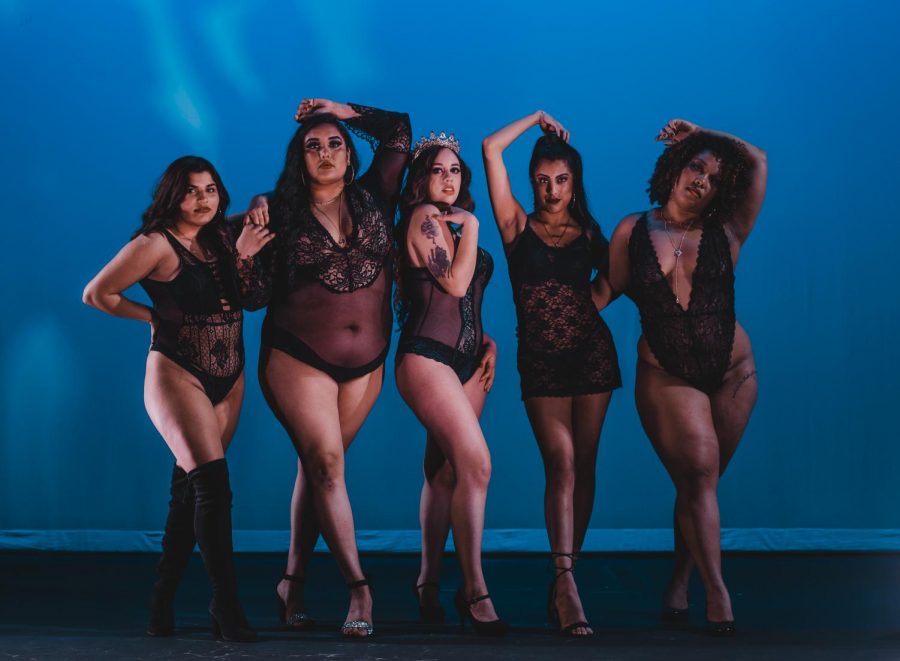Feelin’ Myself
May 5, 2019
In the past women were ridiculed for expressing their sexuality, but the increasing normalization of sex-positivity encourages women to be liberated and free from societal expectations.
“That’s not how women should act.”
“What does her family think of her?”
“Can you believe she’s wearing that in public?”
“Look how much makeup she has on.”
“She shouldn’t be showing that much skin.”
“She’s had so many partners”
“If she’s wearing that she must be asking for it.”
“She should keep her legs closed”
…“She’s such a slut.”
Women have been consistently criticized for the display of sexuality, requesting birth control, having sex, sex work, and for stating that they have been sexually harassed and/or assaulted. Today, women are more so embracing all aspects the idea of “sex positivity” which can be interpreted in different ways. For most, it involves having positive attitudes about sex and feeling comfortable with one’s own sexual identity and with the sexual behaviors of others.
Luhui Whitebear (not pictured)
Coastal Band Chumash, AD of NAL Eena Haws
3rd year PhD student in WGSS, minor in QS
“For me, there was a lot of reinforcement around dominant views towards cis-hetero-centric around sexuality growing up. The norms around shame, in regards to both women’s bodies and sex, were also very present. This caused a lot of confusion for me around identity and expression that impacted me deeply. The reinforcement of shaming also had implications around sexual violences and discourse for me as well as other people I grew up with. I didn’t understand concepts around consent like I do now and didn’t feel I had self agency in regards to my body for a long time. Now, I have made many strides in this area to be more open about myself and conversations around both bodies and sexuality. This has helped me professionally and academically in creating an atmosphere and conversations that focus on breaking silences and addressing violences towards our bodies. As an Indigenous woman, this is super important given the prevalence of violences towards our bodies. Personally, I am able to have ongoing conversations with my children about consent and body/slut shaming to try to help them feel more in control over their own bodies. Breaking silences and pushing back on settler colonial conceptions around bodies and sexuality are important parts of my work on campus and in communities.”
Emalydia Flenory
1st year graduate student in the school of writing literature and film
“I believe that sex positivity is huge in not only my life but for everyone. Women specifically have been oppressed and shamed for being proud of their sexuality. Shifting the narrative around sexuality to one that is inclusive and celebratory for everyone, not just for men, is very important to me.
A celebratory approach allows for me to not be afraid to talk about anything from my own sexual needs to issues of sexual violence in a confident and empowered way. It gives me the ability to be proud of my own identity and uplift others to celebrate their own.”
Ameyalli Ixtlilxochtil Manon-Ferguson
Sixth year undergrad majoring in Fisheries and Wildlife Science, Sustainability, and Ethnic Studies
“Sex-positivity can look different to each person, but to myself it is rooted in reclamation. Growing up, I was socialized to consider expression of female sexuality as synonymous with slutty, dirty and inferior. The only accepted female sexuality was for male consumption only. For myself, reclaiming female sexuality is tied directly to body positivity and celebrating both as inherently valuable without having to cater to the male gaze. I learned that expression of sexuality doesn’t have to go hand in hand with promiscuity, and those who choose promiscuity have nothing to be ashamed of. I can enjoy expressing myself, my femininity and my sexuality without having them be a commodity meant for someone else.”


